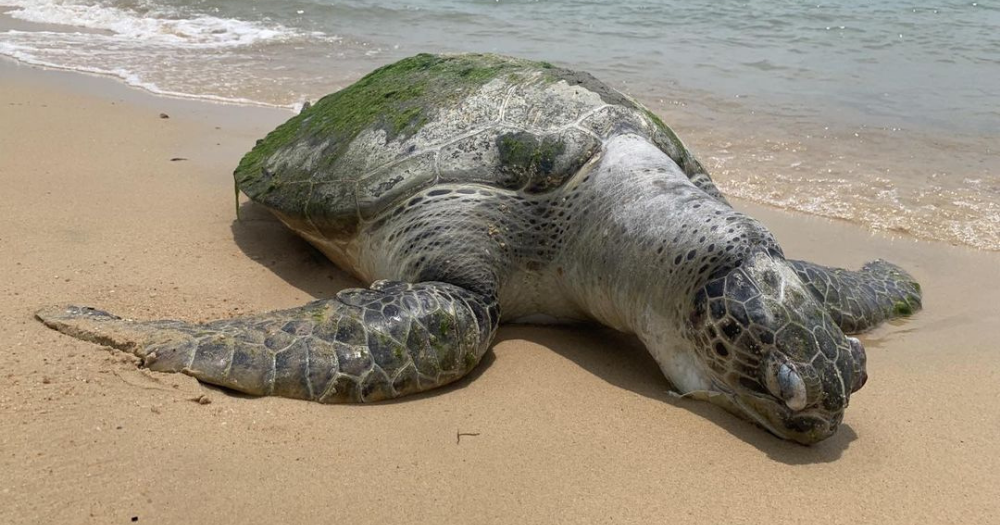On Oct. 17, park-goers at East Coast Park came across an unusual visitor to Singapore's shores, a large green turtle.
Unfortunately, the turtle, which belongs to an endangered species, had long perished, and its carcass was decomposing in the surf.
Turtle was more than 1m long
A couple strolling along the beach spotted the creature on the sand in front of the National Sailing Centre, and alerted wildlife rescue group Acres.
Acres volunteer Robin Hicks was one of those who answered the call.
The couple initially believed the turtle to have been alive, as they thought they saw it moving in the sand, but Hicks and other volunteers confirmed that it was dead upon their arrival.
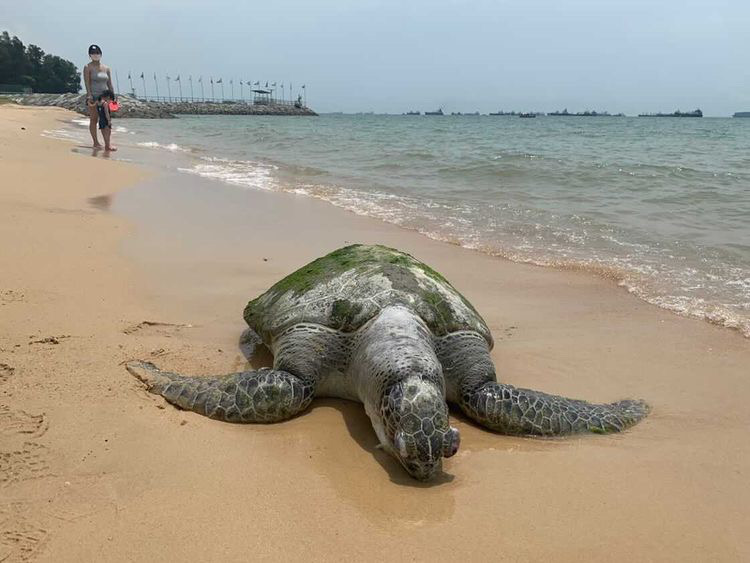 Photo courtesy of Robin Hicks
Photo courtesy of Robin Hicks
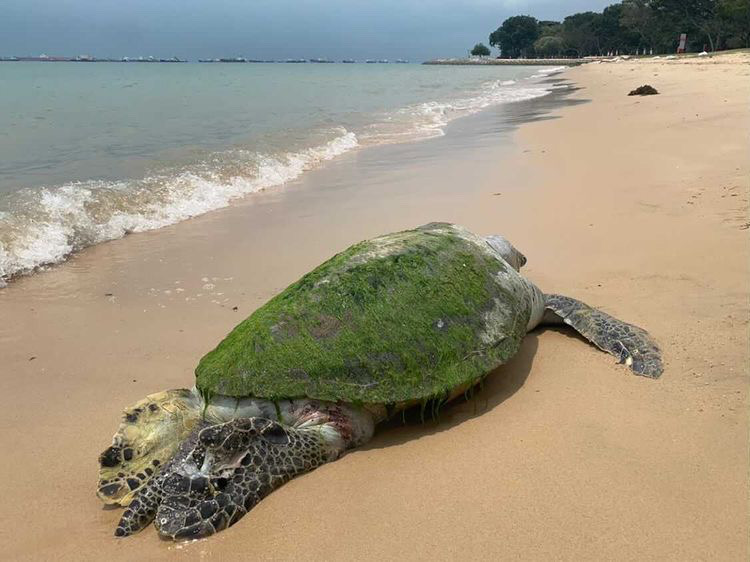 Photo courtesy of Robin Hicks
Photo courtesy of Robin Hicks
Speaking to Mothership, Hicks shared that the turtle, more than a metre long, had been "dead for a long time".
Its skin had already started to peel off, and its neck and tail were bloated, all signs of decomposition.
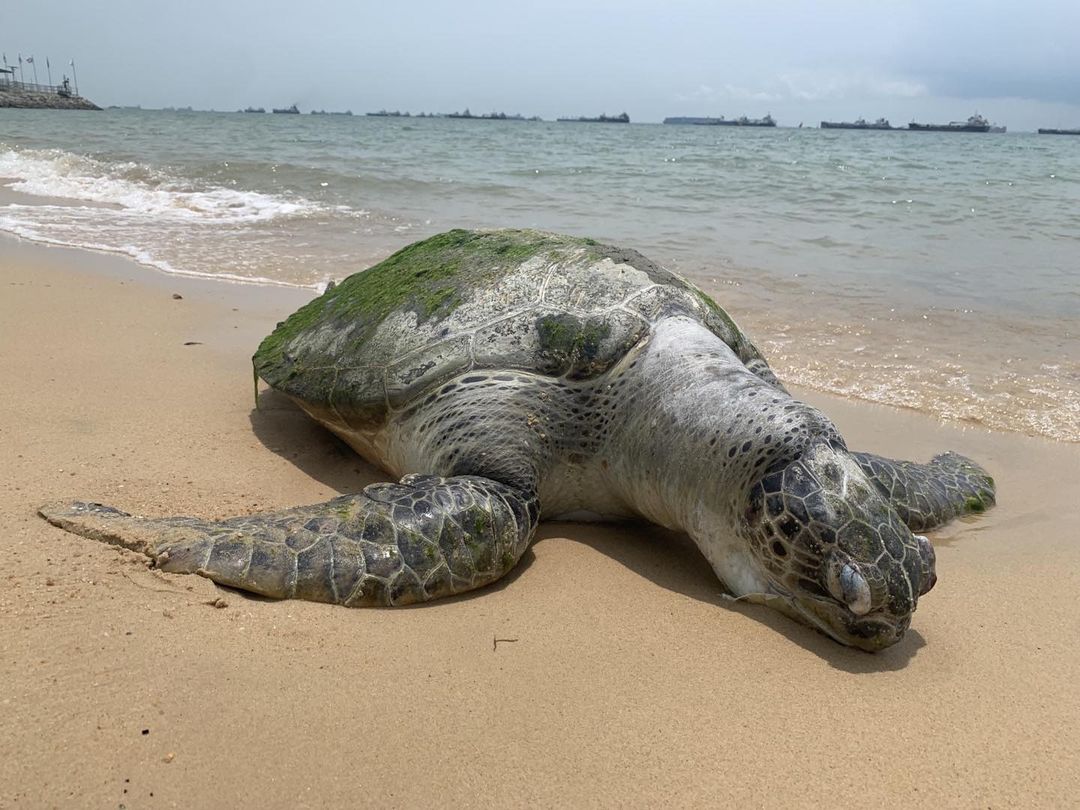 Photo courtesy of Robin Hicks
Photo courtesy of Robin Hicks
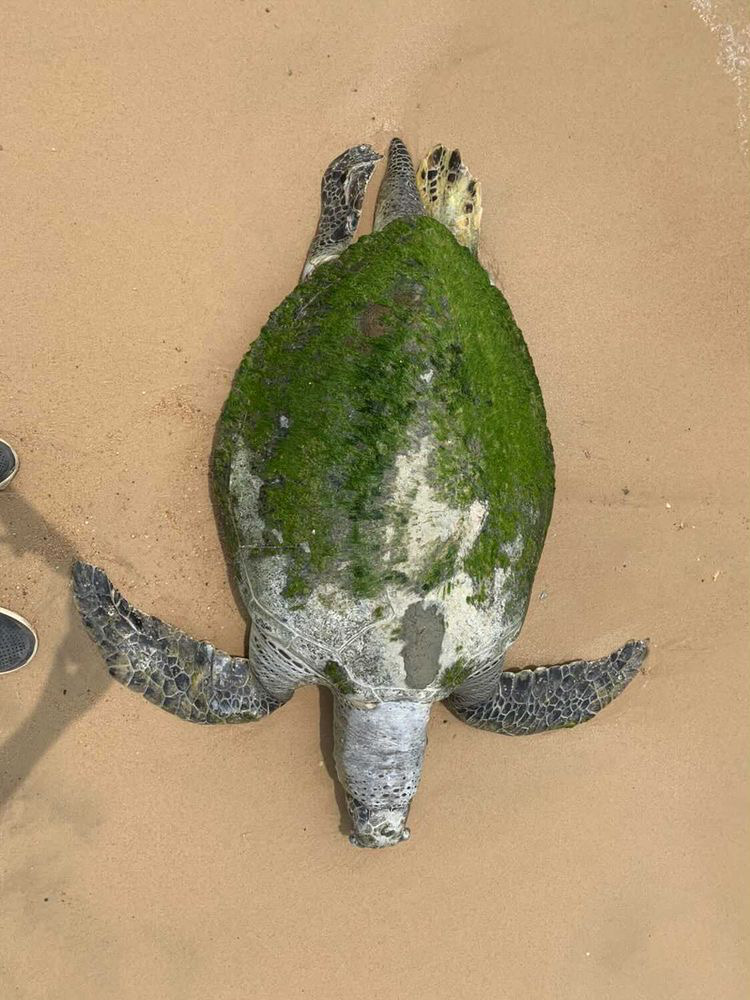 Photo courtesy of Robin Hicks
Photo courtesy of Robin Hicks
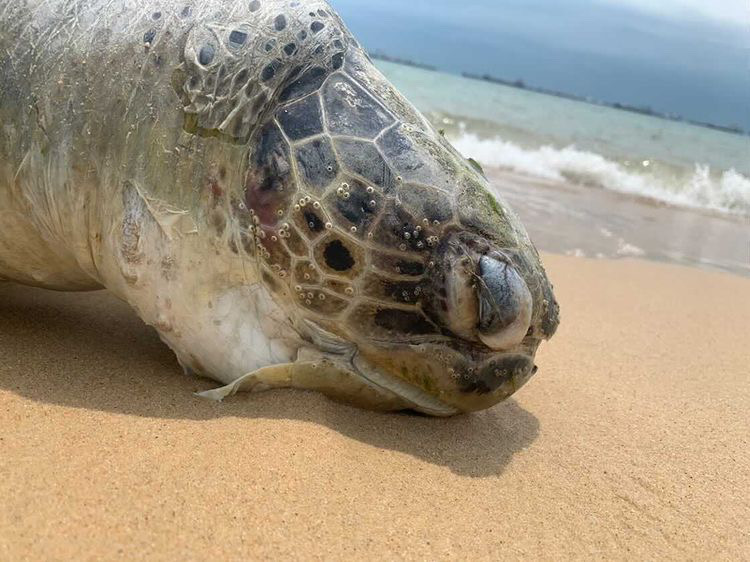 Photo courtesy of Robin Hicks
Photo courtesy of Robin Hicks
The National Parks Board (NParks) was subsequently informed, and officers went down to retrieve the carcass.
Group Director of the National Biodiversity Centre at NParks, Ryan Lee, said in a statement to Mothership that the carcass had been collected for a post-mortem.
The turtle did not have any signs of physical injury, and Lee stated that due to the advanced state of decomposition, the cause of death is "not determinable".
"The carcass was likely to be floating around for several days before washing up on the beach along East Coast Park," he added.
Plastic pollution, a threat to turtles
Although the turtle's cause of death was not identified, a sea turtle ecologist, Rushan bin Abdul Rahman, told Coconuts that ingesting plastics could have been a potential cause.
This is contributed by the fact that the turtle appears largely uninjured.
Plastic pollution is a huge threat to marine life — creatures can get entangled in plastic debris, or accidentally ingest plastic items thinking it's real food.
Turtles in particular, often mistake discarded plastic bags as jellyfish, one of their main food sources.
BBC reported that based on the results of a scientific study, there is a one in five chance of death for a turtle who has consumed a single piece of plastic, and a 50 per cent chance of death for a turtle with 14 pieces of plastic in its gut.
Other threats turtles face include collisions with boat propellers, poaching, and getting caught in discarded fishing gear.
Endangered species
Green turtles are an endangered species, according to the International Union for Conservation of Nature (IUCN).
The species is named for the greenish colour of its cartilage and fat, not its shells.
They are one of the two species of turtles found in Singapore, NParks stated. However, unlike the more common Hawksbill turtles here, there have not been any records of green turtles nesting on Singapore shores.
NParks advises those who spot a nesting turtle on the beach to keep their distance from the turtle and the eggs.
Touching the turtle may scare or provoke it, and handling the eggs may damage them or introduce bacteria into the nest.
One should also talk softly and stay out of sight, and avoid shining lights at the turtle or use flash photography as the light and noise may scare the turtle and cause it to leave without laying any eggs.
Members of the public should also keep clear of tracks left by the turtle, as researchers use the tracks to identify the species of the turtle and to locate the nest.
One contact the NParks helpline at 1800 471 7300 to report a turtle sighting.
Related turtle stories
Top photo courtesy of Robin Hicks
If you like what you read, follow us on Facebook, Instagram, Twitter and Telegram to get the latest updates.
